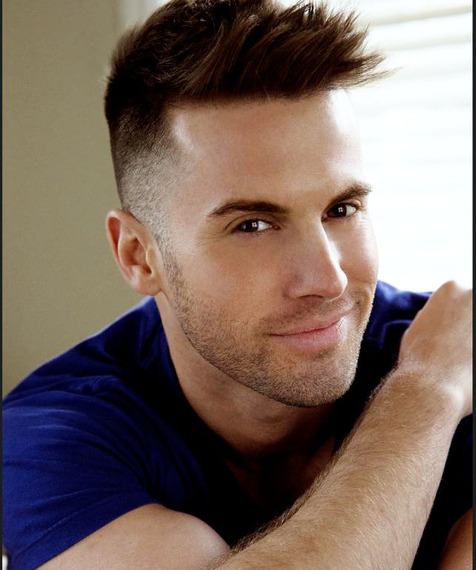In the fight for civil rights, the battles have typically been fought between two parties. Whether it was blacks vs. whites, men vs. women or Meryl Streep vs. actresses everywhere, there never has been a need to identify a third party. And in the tradition of the haves versus the have-nots, the ruling party gets to choose how their opponents are defined.
In the battle for same-sex rights, who was a part of our demographic was decided for us long ago, and we didn't know we could question it. We were LGBT, and our opponents, the moral majority, knocked us out round after round.
But we are no longer the wimpy kids in the corner, vastly outmatched by our foes. Over the last several decades, we've grown to become a worthy opponent and are winning state and federal policy battles. As we continue to progress in the fight for equal rights, it has become apparent that the "T" in LGBT is being neglected as gay men and women continue to take precedence.
By being part of the same-sex acronym, trans individuals are rarely recognized as a unique group that requires its own specific agenda to obtain equality. Instead, they are often considered an obscure and misunderstood subgroup of the gay community.
In the beginning of the gay rights movement, the battle against violence, outright discrimination and blatant intolerance was one that gays, bisexuals and transgender men and women were equally invested in.
But now, the concerns of gay men and lesbians have shifted to such things as marriage equality and employment discrimination. Although transgender men and women also share in these inequalities, they are subjected to many more injustices that fail to gain hardly any mainstream support.
According to a report in the Center for Transgender Equality, trans people experience three times as much police violence as non-transgender people. Trans people are often inappropriately sexualized in the media and are subjected to derogatory comments about their genitalia, which rarely are corrected.
The report also shows that trans people are more likely to be poor and homeless because of their inability to obtain employment and a lack of protection in employment rights.
According to the Centers for Disease Control and Prevention, the highest percentage of HIV infections occurs among transgender women, yet this statistic is rarely discussed in mainstream media.
The issues of transgender men and women are often brushed to the side as the preoccupations of an overly sensitive group of people. People often justify their intolerance of the trans community while expressing support for same-sex rights.
Just last week, actress Gabourey Sidibe repeatedly used the slur "tranny" while on Arsenio Hall's show. Sidibe, an outspoken supporter of gay rights, was stunned to find out that the slur was considered offensive, and she quickly apologized for her error.
But then, something interesting happened. Stories published on several media forums, including the Advocate Magazine online and Instinct Magazine online, posed the question of whether we are being too sensitive about a word that is commonly used in the gay community.
Numerous gay men and women then weighed in on whether the trans slur was, in fact, a slur. A large percentage of the commenters agreed that the media and the gay community were being too harsh on the popular TV actress. One commenter even said it could not be considered a negative term if popular shows like RuPaul's Drag Race used the term in a comedic and even an affectionate way.
These comments are evidence that even the gay community does not understand and are often the cause of discrimination against transgender people. In case you weren't aware, the drag queens on RuPaul's Drag Race are the reason people like Sidibe are clueless about trans slurs. Those drag queens are gay men who continually abuse a term that damages trans people. Just like "that's so gay" is often meant to be humorous, comically calling someone a "tranny" may garner a few laughs, but it unintentionally demeans a group of people.
When drag queens remove the trappings of their dramatized personas, they become once again a part of the gay rights movement and leave real transgender people to suffer the consequences.
Although the discrimination against trans people by the gay community is unintentional, it is the reason the "T" should be removed from the LGBT. Gay men often use the slur because they believe it's a part of their collective community vocabulary. Just as we take liberties by using our own gay slurs as we chose, we mistakenly use the slurs aimed at trans people and whose objections are brushed off as political sensitivity.
There is a difference between sexual orientation and gender identity, and it can't be expected that one movement will equally serve both groups. However, gays and transgender individuals both share in the effects of being misunderstood. So, as gay men and women, we don't fully need to understand being transgender to be able to whole-heartedly support that cause.
The public opinion of same-sex orientation and gay rights has changed drastically over the past several decades. The majority of Americans now support the civil rights of gay men and women, giving our fight for equality some much needed muscle.
Now we have the chance to throw our strength behind a group who continues to be marginalized just as we were not too long ago.
Transgender people still suffer from the bullying, discrimination and injustice from which many gays and lesbians have long since moved on. Now, more than ever, it's time for the LGB to start championing the "T."
